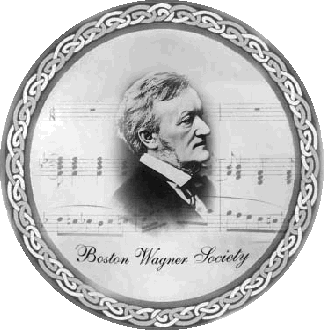Fliegende Holländer Symposium Soars
On March 14 several opera scholars and performers of Der fliegende Holländer’s concert version at Symphony Hall gathered at Harvard University to present a symposium entitled “New Perspectives on Wagner’s The Flying Dutchman.” The three panels of the symposium were titled “Deconstructing Senta,” “Illusion and Fantasy in The Flying Dutchman,” and “The Flying Dutchman in Performance.” By far the most interesting for a Wagnerite was the third topic, with Juha Uusitalo (the Dutchman), Alfons Eberz (Erik), Paul Groves (the Steersman), and conductor James Levine on the panel.
Levine lauded the merits of opera in concert as opposed to a staged version; although the essential element of staging is lost in a concert version, there is an increased concentration on expression. Eberz, who had just performed Erik for the 45th time the day before the symposium, concurred: “[In concert,] there is no producer to disturb me, so I can concentrate on singing.”
Groves, who has sung the role of the Steersman for 12 years, spoke about his experiences: “I don’t have the voice for other Wagner parts. [The first time I sang the role,] I had never even seen a Wagner opera. At the rehearsal, a mountain of a man came, looked down on me, and said, ‘You’ll be fine, kid.’ It was Matti Salminen. I’m in awe of people who can sing this music.”
Levine lamented the fact that “there are never enough great singers. Juha [Uusitalo] is almost fully booked till 2011. I did so many performances of Parsifal because the cast was there; but it’s not there for Tristan. For these big pieces, there are not a lot of singers. They’re a rarefied breed.” Nevertheless, Levine said that he would bring Tristan und Isolde to Boston, as well as Parsifal and Tannhäuser, over the next few years.
Among the scholars present, Daniel Albright of the English Department at Harvard University reminded the audience that Wagner considered Senta the woman of the future. Senta, he said in his segment entitled “The Diabolical Senta,” is not like Wagner’s “sleek, muscular virgins who populate his later operas.” Rather, like Elsa, “she has a farther psychic reach.” Albright, perhaps with tongue in cheek, characterized Senta’s relationship with the Dutchman as a “marriage between the unwed and the undead.”
Carolyn Abbate, of the Music Department at Princeton University, in the segment called “Reverberations,” showed clips from the 1931 film Thief of Baghdad and other films and pointed out the similarities with Der Fliegende Holländer. Ab-bate, whose book Unsung Voices is a classic in the opera world, will join the Harvard faculty in the fall.
The symposium was thoroughly enjoyable and gave much food for thought. And it was delightful to see so many Wagnerians attend this special event.
–Dalia Geffen
